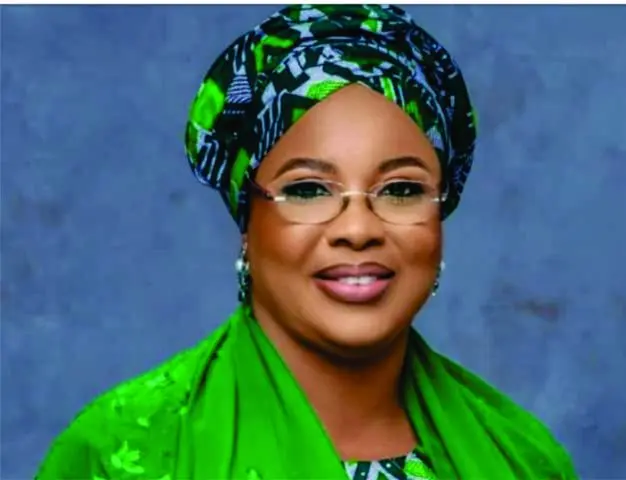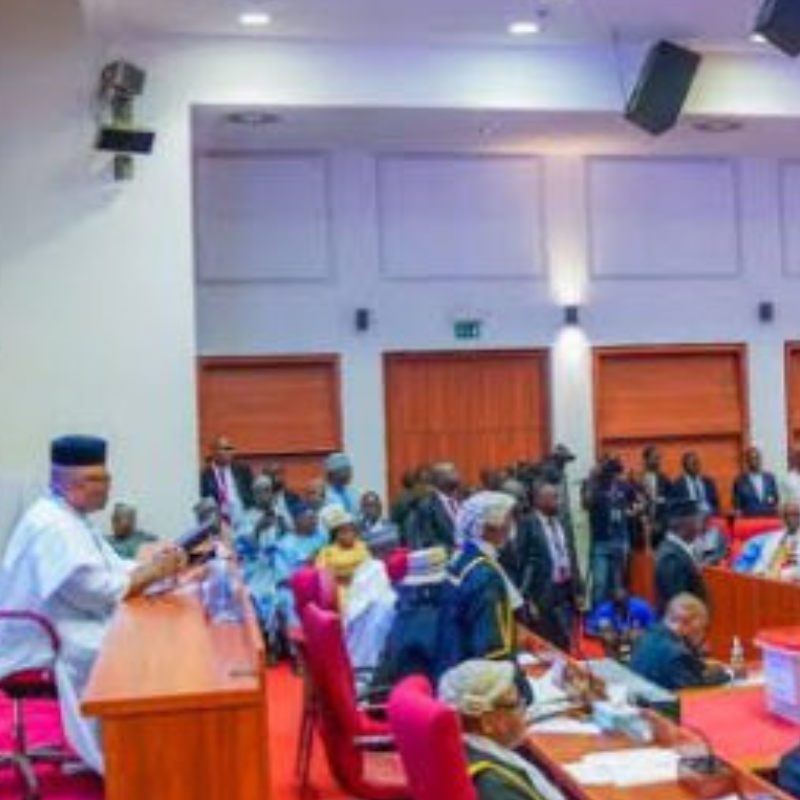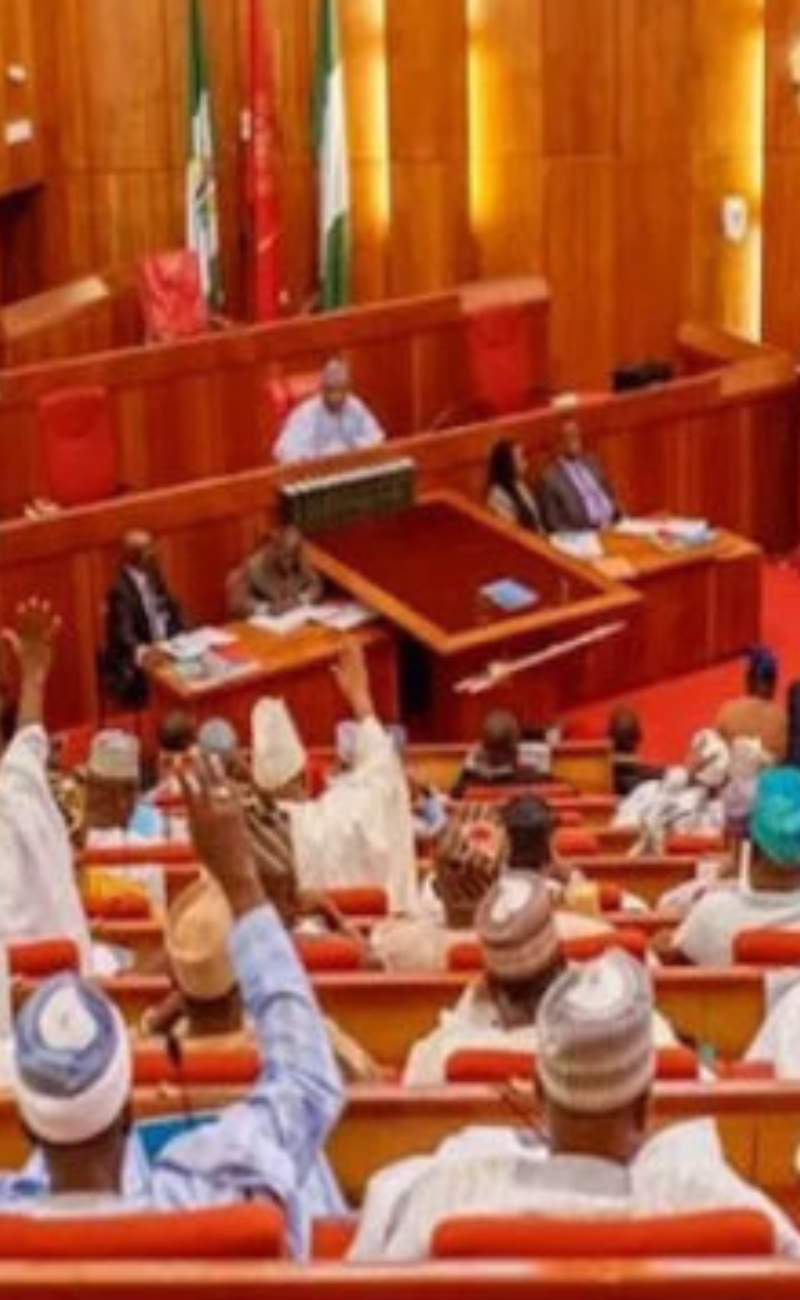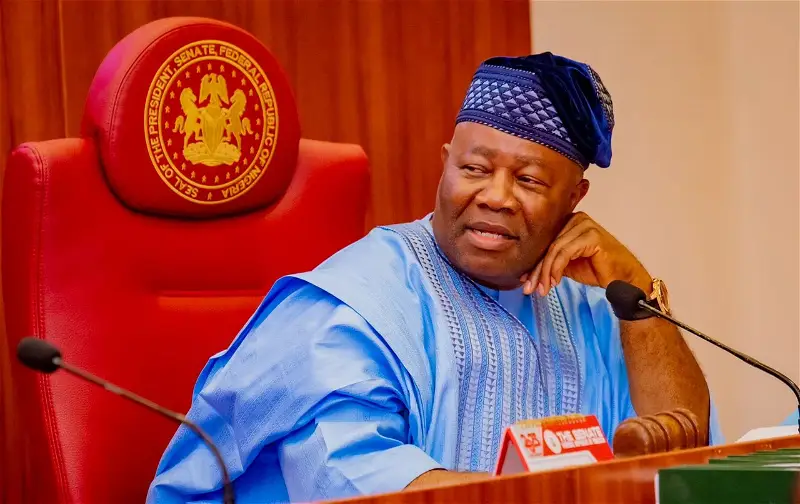In this episode of the Gender Equality and Social Inclusion (GESI) tracker, we spotlight a motion calling for the reintegration of Internally Displaced Persons (IDPs), and a bill calling for at least 15 percent of women’s representation in the armed forces.
![]()
Reintegrating Internally Displaced Persons
In the House of Representatives, Rep. Felix Uche Nwaeke (PDP, Rivers) raised a motion drawing urgent attention to the estimated 3.3 million Internally Displaced Persons (IDPs) in Nigeria as of April 2024.
He stated that these persons reside in over 300 camps across ten northern states which are Benue, Kaduna, Kano, Katsina, Kogi, Nasarawa, Niger, Plateau, Sokoto, and Zamfara States.
Recognizing that the majority of IDPs are women and children, the motion underscores the need for a structured reintegration plan that goes beyond short-term humanitarian aid. It advocates for holistic support, including cash assistance, food, clothing, and psychosocial services, as essential for restoring dignity and stability to displaced populations.

By highlighting the psychological, emotional, and physical trauma suffered by IDPs, especially women and children, the motion brings to the fore the gendered impacts of conflict and displacement.
Women and children often face heightened risks and challenges during crises, including gender-based violence, exploitation, disrupted access to education, and inadequate healthcare, which leaves them especially vulnerable in displacement settings.
Viewed through a GESI lens, this motion is gender-responsive and socially inclusive, as it prioritises the needs of marginalised groups who often experience compounded vulnerabilities.
It calls for institutional action from the Ministry of Humanitarian Affairs and National Emergency Management Agency (NEMA) to mainstream inclusion into reintegration efforts, aligning with principles of equity, dignity, and sustainable development.
By demanding structured and accountable intervention, the motion affirms the importance of the Sustainable Development Goals (SDGs) of leaving no one behind in national recovery and rehabilitation processes.
Read Also: Only 3 Motions of 100 Directly Spolight Inclusion in 10th Senate | GESI Tracker
Institutionalizing Gender Equality in Nigeria’s Armed Forces
The Armed Forces Act (Amendment) Bill, 2025, sponsored by Rep. Kafilat Ogbara (APC, Lagos), also in the House of Representatives, presents a landmark opportunity to institutionalize gender inclusion in Nigeria’s military. It embodies the core GESI principle of gender equality.
The bill seeks to amend the Armed Forces Act, Cap A20, Laws of the Federation of Nigeria, 2004, by mandating a legally binding minimum quota of fifteen percent representation of women across all stages of the armed forces, enlistment, recruitment, and appointment.

This legislative intervention directly tackles structural gender imbalances that have historically excluded women from meaningful participation, especially in leadership and combat roles, where representation currently remains below.
By legally guaranteeing access, the bill challenges deep-rooted institutional barriers and cultural biases, opening pathways for women who have long been sidelined in Nigeria’s security architecture.
More than a numbers game, the bill advances systemic reform by establishing a gender-responsive compliance programme that embeds equity across all facets of military life, including training, accommodation, logistics, postings, operational engagement, and disciplinary procedures.
By doing so, it ensures that women are not only recruited but are adequately supported, retained, and empowered throughout their service. Importantly, the bill mandates the creation of a dedicated gender monitoring unit within the armed forces, tasked with tracking compliance, maintaining sex-disaggregated data, and informing policy reforms through evidence-based analysis.
This emphasis on accountability aligns with international best practices in countries like South Africa and Rwanda, where gender-inclusive policies have enhanced operational effectiveness and institutional legitimacy.
From a broader GESI perspective, the bill is socially inclusive, acknowledging that women often face unique challenges within male-dominated environments. Issues such as marital status, family responsibilities, and inadequate infrastructure have hindered women’s career advancement in the military.
By addressing these factors within its gender compliance framework, the bill fosters a more humane and equitable service structure. It also signals a national commitment to international instruments such as the Convention on the Elimination of All Forms of Discrimination Against Women (CEDAW) and UN Security Council Resolution 1325, both of which emphasise the critical role of women in peace and security. Furthermore, it reflects the spirit of Section 42 of Nigeria’s Constitution, which prohibits gender-based discrimination.
This bill is timely and a transformative response to Nigeria’s evolving security challenges as it promotes empowerment, leadership, and diversity of perspectives within the armed forces, contributing to greater institutional credibility and national progress.
The bill has scaled second reading in the House.




